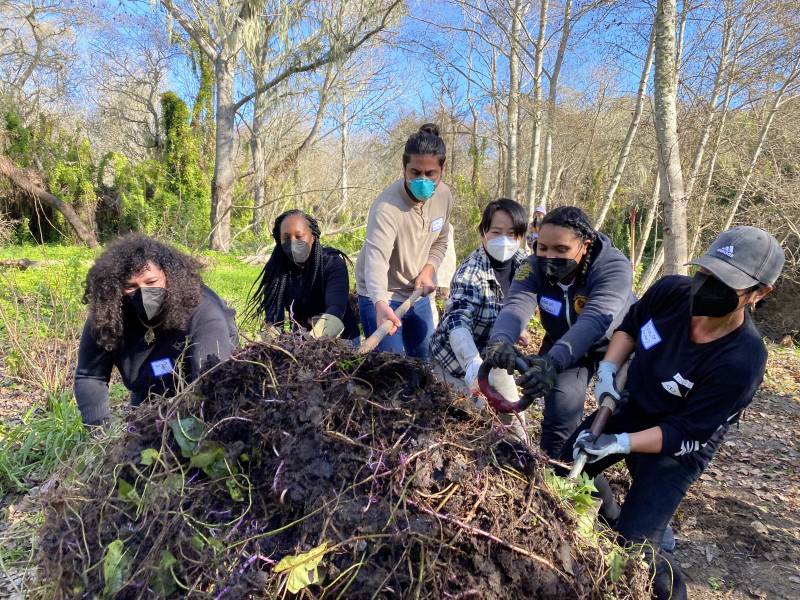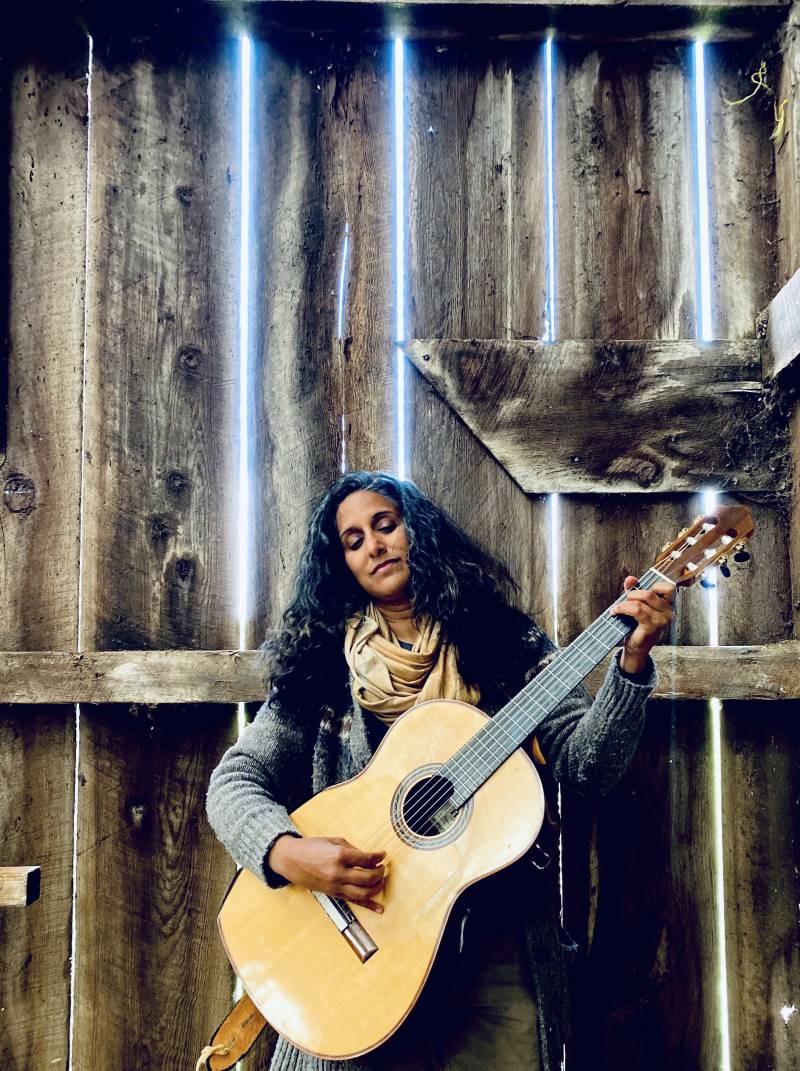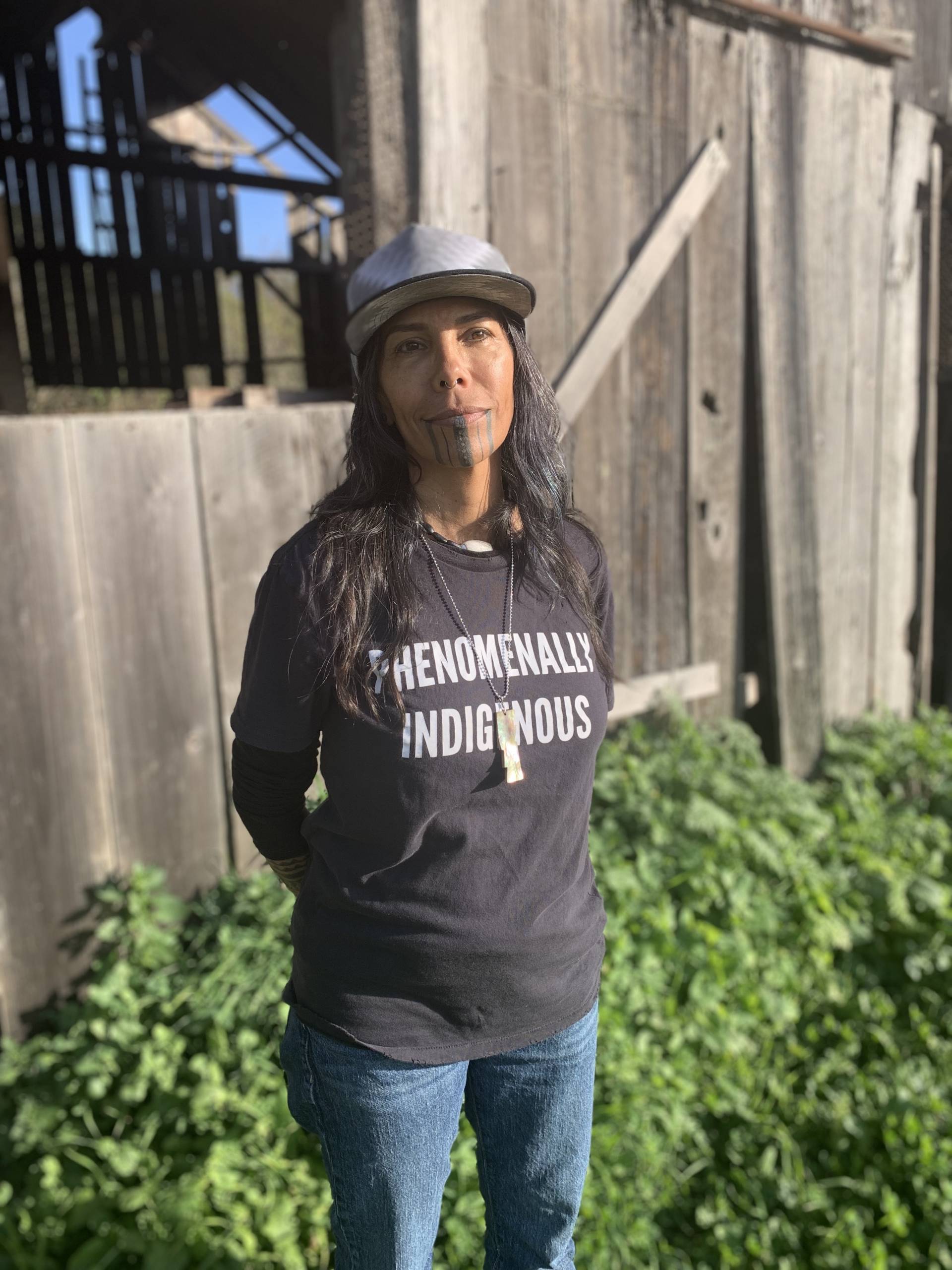The California Report Magazine’s Sasha Khokha and Izzy Bloom visited a 38-acre farm in San Gregorio, 40 miles west of San José, to follow a new project aimed at returning land to the Ramaytush, the Indigenous people of the San Francisco Peninsula. The project is spearheaded by Deep Medicine Circle, a nonprofit group led by women of color, whose goal, according to its founder Rupa Marya, is to “heal the wounds of colonialism through food, medicine, story, learning and restoration.”
We spoke with three of the women leading this land back effort.
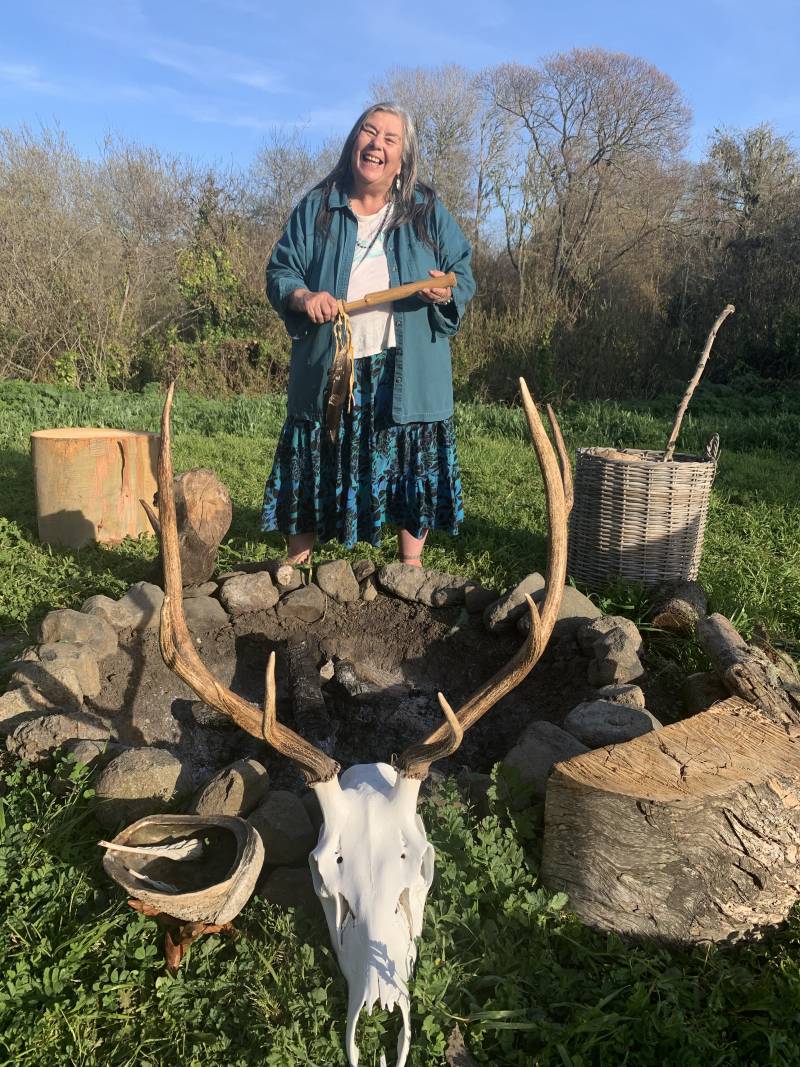
Catalina Gomes: Ramaytush Indigenous elder
When Catalina Gomes was growing up in San José, she knew very little about her Indigenous roots. Gomes said her mother and grandmother wanted to protect her from the “trauma that we’ve suffered in the last 400 years,” so they didn’t speak about their heritage. The only thing they told her when she was a child was that she was a 12th-generation Californian. But Gomes said she always had a strong intuition that this wasn’t the full story.
As a young adult, Gomes learned she was descended from the Salinan Tribe, from the Salinas Valley and the Santa Lucia coastal range. Then, four years ago, Gomes’s cousin unearthed records from the Spanish missions that revealed their family also has Ramaytush ancestry. In those records, they discovered an ancestor named Muchia Te’. The Spanish recorded her baptismal date as Oct. 2, 1782, when she was about 50 years old.
Gomes said she feels lucky to know Muchia Te’s Indigenous name, because it was common for the Spanish to record only the baptismal names of Indigenous people. Gomes is now creating a land trust, called the “Muchia Te’ Indigenous Land Trust,” named after her ancestors. The 38 acres of farmland, which are currently being held by Peninsula Open Space Trust, will soon be returned to Gomes and the Ramaytush.
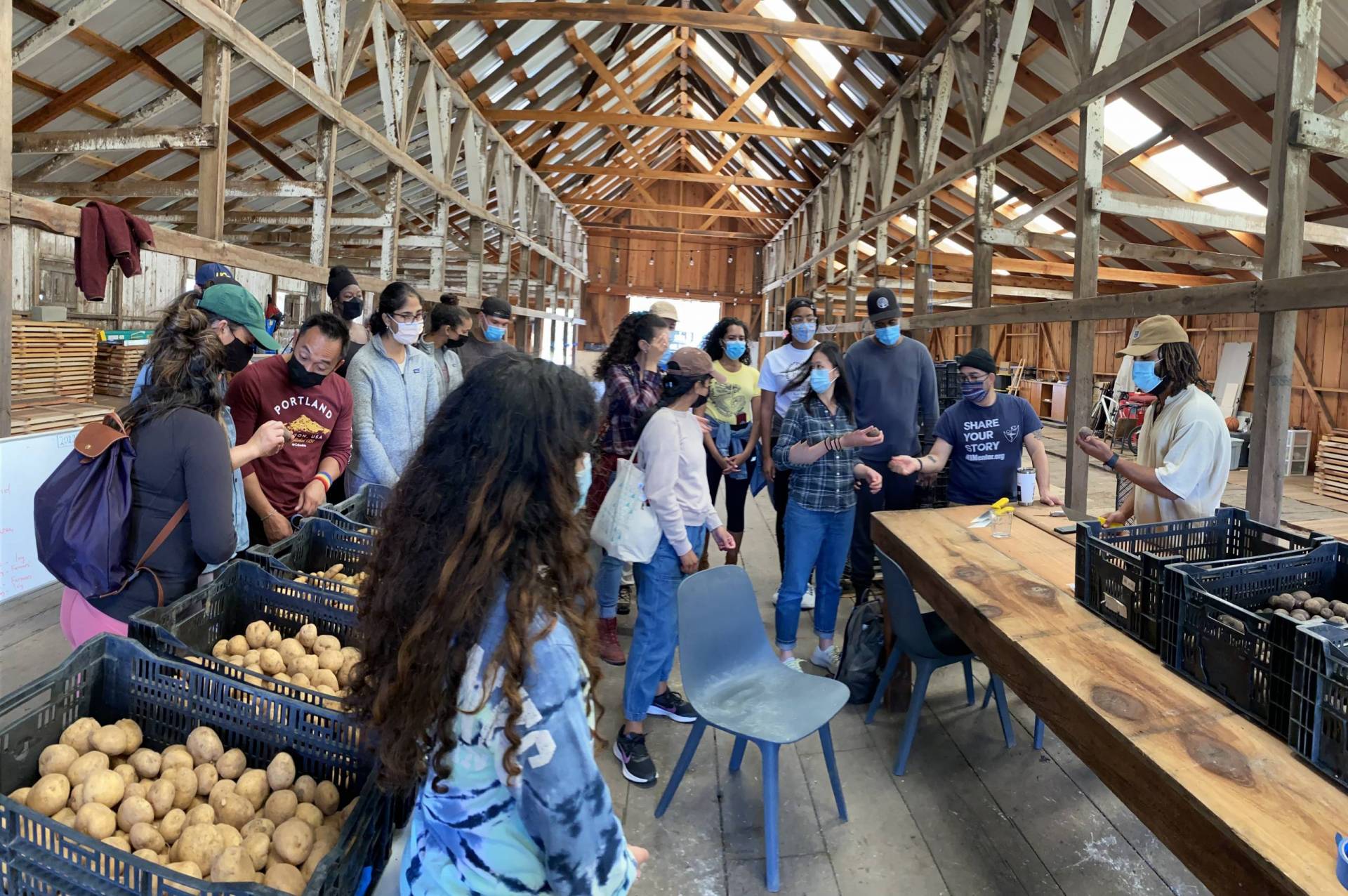
On May 1, Deep Medicine Circle will officially rename the farm Te Kwe A’naa Warep, which means “honoring Mother Earth” in the Ramaytush language.
